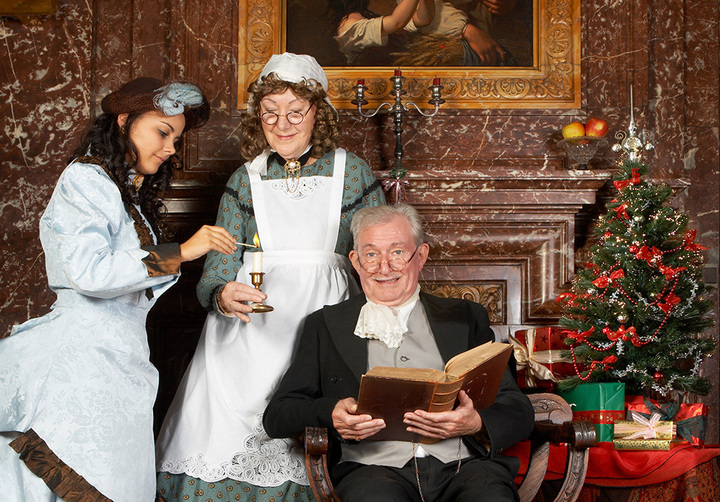In this article, we will delve into the history of staff members starting from the Victorian Era and continuing through the early 20th Century. Household staff members have significantly influenced the dynamic of a family’s homes and lifestyles for ages. These diligent individuals are the cornerstone of many influential and robust families throughout history.
We will now explore staff members’ roles and influence during the Victorian Era.
Household staff members in the Victorian Era
During this Era, staff members worked for upper to middle-class families. These family homes often employ many staff to manage daily life, including cooking, cleaning, and running errands.
During that period, the tasks of these individuals was similar those performed by today’s staff members.
Additionally, the treatment of the staff members was dependent on the employing families. Some families treated the household staff respectfully, including providing reasonable working hours and good working conditions. Alternatively, some families would subject the staff to low wages and awful conditions. More frequently, employing families exploited staff memebers.
Furthermore, these staff members worked incredibly long hours. Many members lived or resided in the household where they served. These members were subjected to work from the early morning until late at night. This leads to little time off and stressful working conditions. Also the social hierarchy of staff members made it highly challenging for the staff to feel welcome with the family members.
Historically, there has been an enormous struggle for fair treatment and rights for domestic staff members. Looking at the Victorian age, where these members had little to no respect, we can see the improvements made through today’s time. While there has been progress, there is still a struggle for fair wages, acceptable working conditions, and essential recognition for workers.
Recently, there has been a significant increase in attention that domestic staff has gained for fundamental rights and fair treatment. Recognizing the importance of domestic work and valuing the contributions of staff members has become an integral part of modern society’s understanding of employment and human rights. Much effort has been made under legal rights, treatment, and different protection laws for staff members.
Finally, there is an aspect of respect that must be included in the treatment of domestic staff workers. Today, many individuals value and consider appreciation and inclusivity in the workplace. Emphasizing these changes can help push for further growth and development of equality in the workplace.
The Victorian Era has shown the exploitation and horrible treatment of these individuals in the workplace. By recognizing these injustices and behavior in the past, we can now look to further learn from these actions. From these past behaviors, we can seek to improve the conditions of staff members and the fair treatment of all working individuals.
Household staff members in the early 20th Century
Many people are familiar with the popular tv show Downton Abbey, which covers the dynamic between the staff that work at the estate of Downton Abbey and the family that lives there. This show introduces the lifestyle and relationship of staff members during the early part of the 20th Century while also humanizing and raising awareness for their contribution during this time.
The show displayed the life and stories of many staff characters working at the Downtown Abbey estate. This introduced a sense of empathy for what these individuals go through daily. We are given a glimpse into the loyalty, hard-working dedication, and struggle felt by many workers during the early 20th Century. Their struggles lead the way to the fair treatment and legal rights of household staff members that we see today.
The show delves into the many issues during this time, including inequalities within class, labor rights, and working conditions. Over time, during the early 20th Century, there was a fight for equal treatment in the workplace. These struggles led to establishing of labor laws and regulations that improved working conditions for all workers, including domestic workers. Currently, laws are in place to protect staff, such as paid holidays, maternity leave, and labor laws. These allow staff to feel safer, less overworked and safeguarded.
There was also an introduction of technological advancements during this period. They used several instruments or gadgets to assist in tasks and enhance efficiency. These advancements would evolve further up until today’s time. Today, we have smart home devices and many unique technological advances that have transformed the efficiency and productivity of staff members.
While this extremely popular show is fictional, it does an excellent job of explaining and portraying the lives and treatment of staff members during that period. It gracefully captures and raises awareness about the contribution and appreciation of household staff members during the early 20th Century while discussing issues about labor rights, equality, and technological advancements.
Today, we have learned much from the past experiences of domestic workers. While constant room for improvement and growth exists, we must recognize the progress made.







